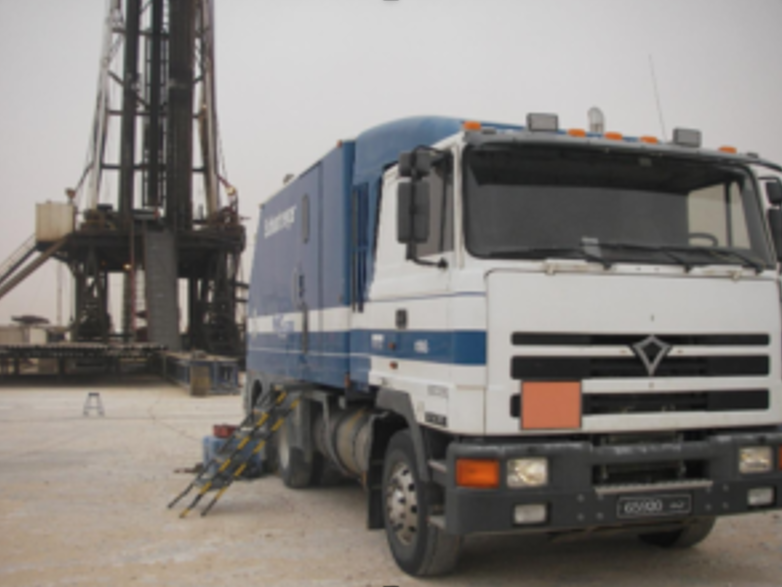
A wellsite geologist is a multifaceted expert on an oil rig, who not only identifies oil and gas reservoirs in a wellbore but also picks up zones of potential hazards. He witnesses various logging companies’ functioning as well as QC their logs and data; geosteers a directional well, performs structural correlation and picks up casing and coring points. Sends logs and reports to town on daily basis and interacts with drilling and logging teams on rig and G&G team in town where he shares his observations and interpretations and helps team in fine tuning the upcoming drilling and logging plans. To perform such critical actions and diverse duties he must possess set of crucial skills. Many of these skills and competencies are briefly described her:
Mudlogging And Data Engineering: Consultant wellsite geologist must have a thorough understanding of mudlogging principles and be able to interpret drilling parameters and data in real-time to understand down hole conditions. He should know how to check the calibrations of various sensors. It is his duty to ensure the quality of mudlogging data and logs match the exacting standards of oil company, mudlogging team stays vigilant in monitoring the parameters and effectively communicate information to driller and supervisors. A consultant geologist must possess the expert level knowledge and skills to perform gas ratio analysis and overpressure detection based on both empirical observations and various log plots.
Formation Evaluation: This skill set includes lithology and core description, shows evaluation, gas ratio analysis and quick look interpretation of real-time LWD logs to estimate oil and gas net pay on daily basis.
Witnessing Wireline Operation and Logs QC: This is an essential skill that all wellsite geologists must possess in abundance. Having working knowledge of logging tools and measuring principles is a must. They must know how to QC various logs in real-time including heading, log curves, remarks and tool calibrations. QC for each set of tools and logs must be completed before the tool is pulled to surface. In addition to conventional wireline logging, consultant wellsite geologists must be familiar with specialized logging operations such as side- wall coring, vertical seismic profile, magnetic resonance logs and various imaging logs.
Pressure Testing and Fluid Sampling: A wellsite geologist is frequently involved in pressure testing and fluid sampling during the course of wireline operation. Many stages are involved from setting tool to opening chambers, in each stage geologist expertise is required to take decision.
Wellbore Stability Analysis: Wellbore stability is a major concern during drilling and logging operations. Consultant wellsite geologist must be able to identify and assess the risks of wellbore instability, such as shales instability and hole collapse, depleted and over pressured zones as well as the effects of very high degree hole deviation. He must also be able to recommend strategies to mitigate these risks, such as adjusting drilling fluid properties or using casing. In difficult hole environment, geologists should be able to assess and recommend the use of TLC for wireline logging.
MWD/LWD Logging: Primary beneficiary of measurement while drilling and logging while drilling is wellsite geologist. These tools provide real-time information about the wellbore, including formation characteristics, wellbore trajectory, and potential hydrocarbon zones. Real time LWD logs though poor in quality do provide tremendous help in estimating net-pay based on quick look method, performing structural correlation and picking up casing and coring points. At the same time one should remember that certain challenges are also associated with these tools, that a skilled wellsite geologist has to manage. For example, apart from being very expensive tools, some of them carry nuclear sources, hence all precautions are to be taken to avoid pipe sticking and the possibility of leaving the tools plugged and abandoned in the hole.
Directional Drilling and Geosteering: For a wellsite geologist, directional drilling is a dynamic process that requires constant monitoring of directional progress with respect to planned trajectory; this also means to maintain close communication with directional driller and operations geologist. It is therefore vital for geologist to have a working knowledge of directional drilling techniques and be able to use geosteering software to monitor the wellbore trajectory in real-time.
Communication and Reporting Skills: Consultant wellsite geologists are required to have top notch communication and reporting skills. They are required to attend meetings where they have to share their observations, interpretations and suggestions in a logical way. At the same time they must be good listener and show respect to opinions of other. Wellsite geologists prepare official reports on many operations, therefore they should be proficient in various reporting formats.
Health, Safety, and Environment (HSE) Knowledge: Consultant wellsite geologist must be familiar with HSE regulations and procedures and be able to work safely in a potentially hazardous environment. He should also ensure that members of various logging teams are observing safety protocols. If required he should be able to perform safety and technical audit on various logging units.
Soft Skills: While the above mentioned hard skills are essential to perform your job as a wellsite geologist, there are additional soft skills that will help you perform your job amicably. These include:
- Cultural Awareness and Teamwork: Consultant wellsite geologists often work at international locations and must be sensitive to different cultures and ways of working.
- Problem-Solving Skills: Consultant wellsite geologists must be able to think critically and solve problems that arise during drilling and logging operations.
- Decision-Making Skills: Consultant wellsite geologists are often required to make quick decisions that can have a significant impact on drilling operation.
Conclusion: To be successful in this demanding and dynamic position, aspiring wellsite geologists must focus on developing these skills; which would require continuous learning, on-the-job experience and guidance from an experienced geologist.
